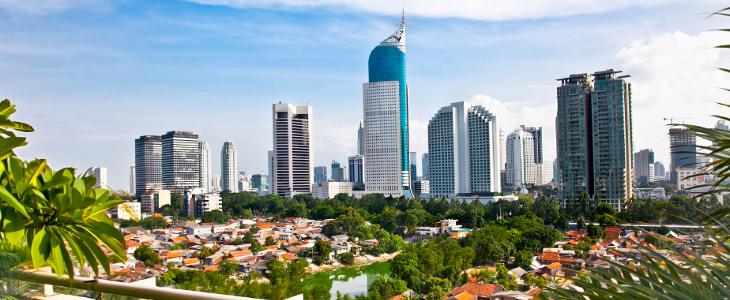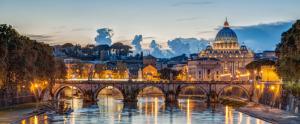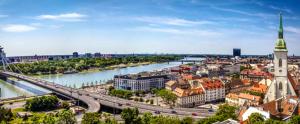You are here Home » Trips a-la-carte » Destinations » Indonesia » History
Indonesia - History

The first proof of the earliest inhabitants of java was discovered by Dr. Eugene Dubois in 1890. Fossils of the "Java Man" ( Pithecanthropus Erectus ) dating back 500,000 years were excavated near Trinil Village in East Java followed by other findings in later years. Migration movements to Indonesia have been traced back to 3,000 - 500 B.C. of Mongoloid stock from China and Tonkin introducing New Stone, Bronze and Iron Age cultures and the Austronesian languange. Indonesia came under the influence of the indian Civilization through the gradual influx of indian traders in the first century A.D. when great empires began to emerge bound to Hinduism and Buddhism.
By the seventh century, the powerful Buddhist kingdom of sriwijaya expanded and it was propably during this period that the spectacular Borobudur Buddhist sanctuary was built in Central Java. The thirteenth century saw the rise of the fabiolous Hindu empire of Majapahit in East Java which united the whole of indonesia and parts of the Malay peninsula and ruled for two centuries. Remnants of this glorious period in indonesia's history are the many monuments spread through Java, like the Prambanan temple near Yogyakarta, the Penataran temple complex in East Java, The temples on Dieng Plateau and many others. The firts attempt to invide Indonesia was by the Mongol emperor Kubilai Khan who was driven back in 1293. With the arrival of Arab Traders, Islam spread gradually till the end of 16th century and replaced Hinduism and Buddhism as the dominant religion.
Small Moslem Kingdoms arose, but none too strong toward European penetrations which followed. The first European to set foot on java was Marco Polo in 1292 but it was much later that the Portuguese arrived in pursuit of the spice trade in 1509 and established trading posts which they controlled from the strategic commercial centre of Malacca on the Malay peninsula.
The Dutch followed at the turn of the 16th century and succeeded in ousting the Portuguese to the easternmost islands where the Spaniards held some ports. The Dutch expanded control of the entire area in the 17th and 18th centuries and held it till the outbreak of World War II. Known as the Dutch East Indies, it fell under British rule for a short period ( 1811 - 1816 ) when Hollandwas occupied by France during the Napoleonic wars. The British Lt. Governor for Java and its dependencies, Sir Thomas Stamford Rafless, was known for his liberal attitude towards the people under colonial rule and his research on the history of java. Long bloody wars were launched by the native people againts the Dutch Colonial government where as indepence movements rose at the begining of the 20th century. With the surender of Japanese in 1945, Indonesia proclaimed its indepedence on August 17 that same year. The returning Dutch bitterly resisted the nationalist movement as intermittent fighting followed. Finally an agreement was reach at The Huge under United Nations auspices when Indonesia's sovereignty over the former Dutch East Indies was recognized on December 9, 1949.





